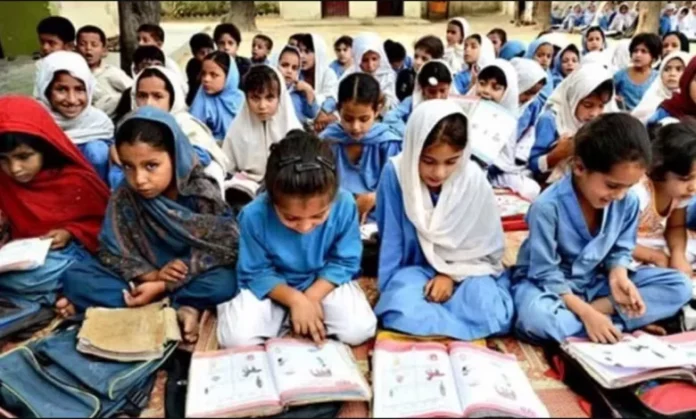- Advertisement -
PESHAWAR, Apr 09 (APP):Rise and Shine Girls’ Education Leadership Network (RSGELN), in collaboration with education rights partners including Blue Veins, urged Khyber Pakhtunkhwa’s Chief Minister Ali Amin Gandapur and Elementary and Secondary Education Minister Faisal Khan Tarakai to provide free books and school bags for children in the merged districts.
This demand comes in response to alarming statistics by the recent Benazir Income Support Programme (BISP) National Socio-Economic Registry survey, which reports that 39% of KP’s 11.7 million children aged 5 to 16 are out of school.
Out of the 4.7 million out-of-school children in the province, 1 million live in the merged tribal districts—areas still struggling with poverty, displacement, and limited access to basic services including education.
“In the merged districts, families are grappling with poverty so acute that sending children to school without basic supplies feels like a luxury. A school bag might seem small, but for a child in South Waziristan, Khyber, or Kurram, it’s a symbol of belonging and hope,” said Maham Nafees, Convener of the Rise and Shine Girls’ Education Leadership Network.
“This is our long-standing demand. We’re urging the provincial government to recognize this need and act immediately.”
Qamar Naseem, an education champion of the Malala Fund and representative of Blue Veins, emphasized, “Providing school bags is not charity—it’s a necessity and a responsibility. It’s about making education more accessible, especially for girls who already face enormous pressure to drop out due to poverty, early marriage, and restrictive social norms.”
The situation in the merged districts is particularly dire, where many families are still recovering from decades of underdevelopment. A simple initiative—like the free distribution of school bags—can support retention, restore dignity, and rekindle the desire to learn.
“Every empty-handed child walking to school without a bag carries the weight of a system that has failed them,” said Neelum Afridi, a grassroots educationist and women’s rights activist from Khyber district.
“These children are eager to learn, but the lack of basic learning materials crushes their motivation. It’s time the government steps in with empathy and practical action to ease their burden and reignite their dreams.”
The group emphasised that sustainable progress in girls’ education in KP will only be possible if the government listens to the voices from the margins and responds with inclusive, budget-backed commitments.

